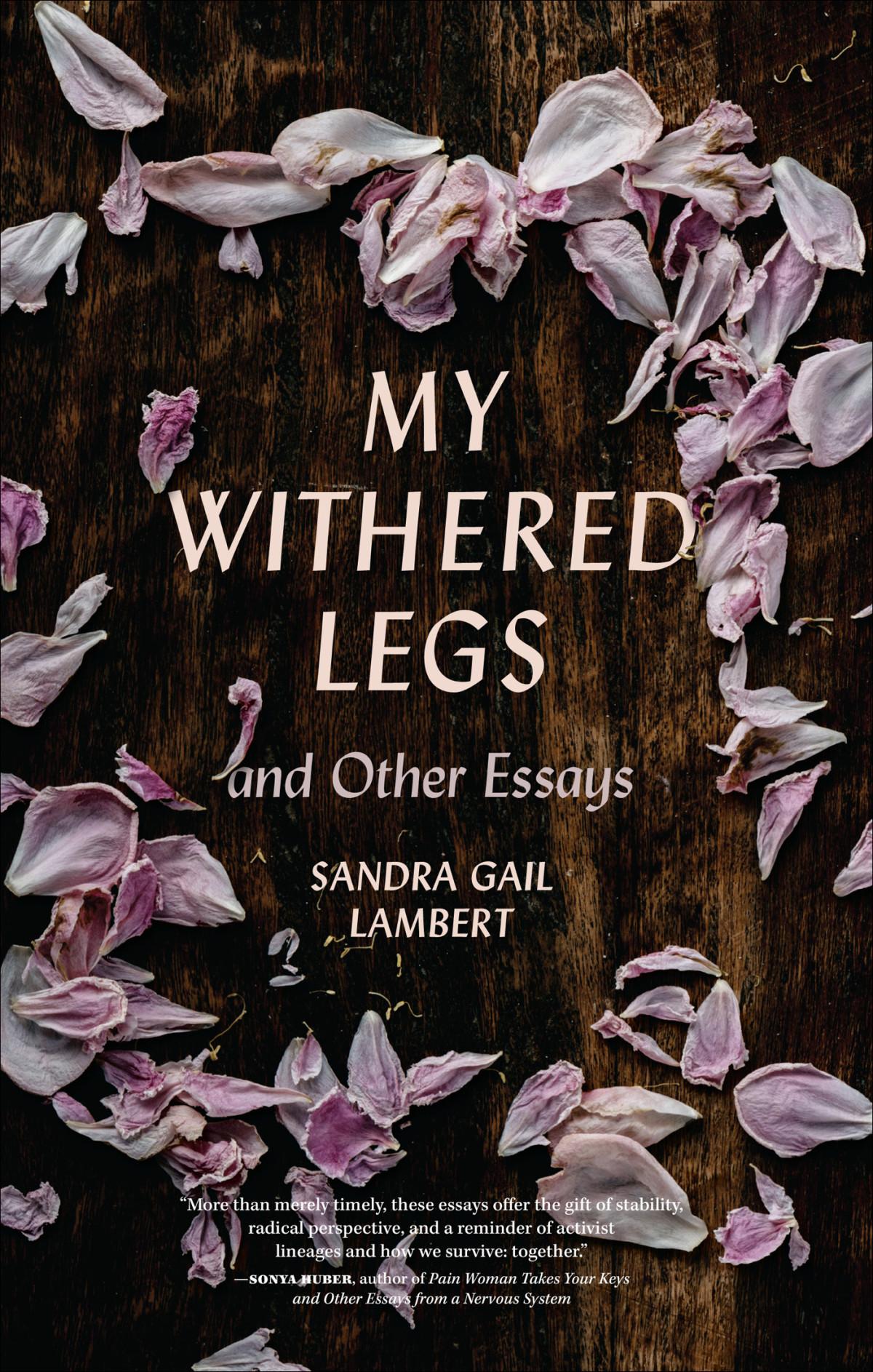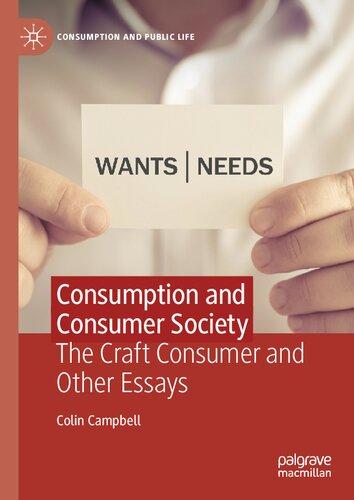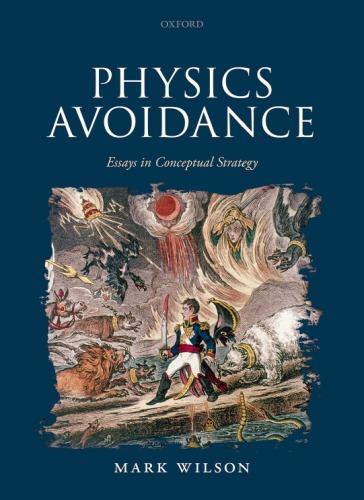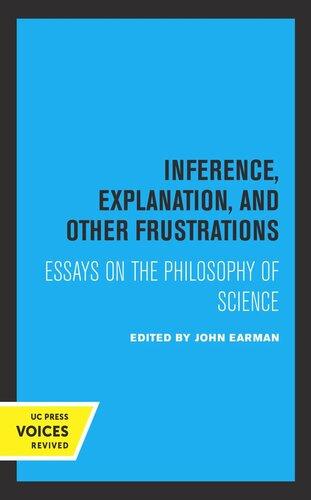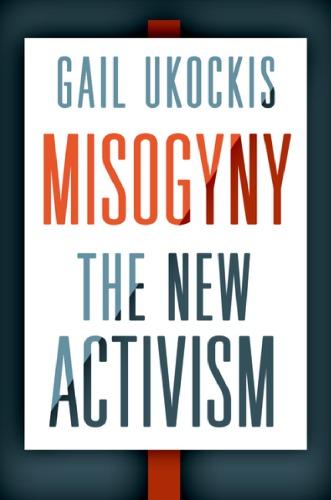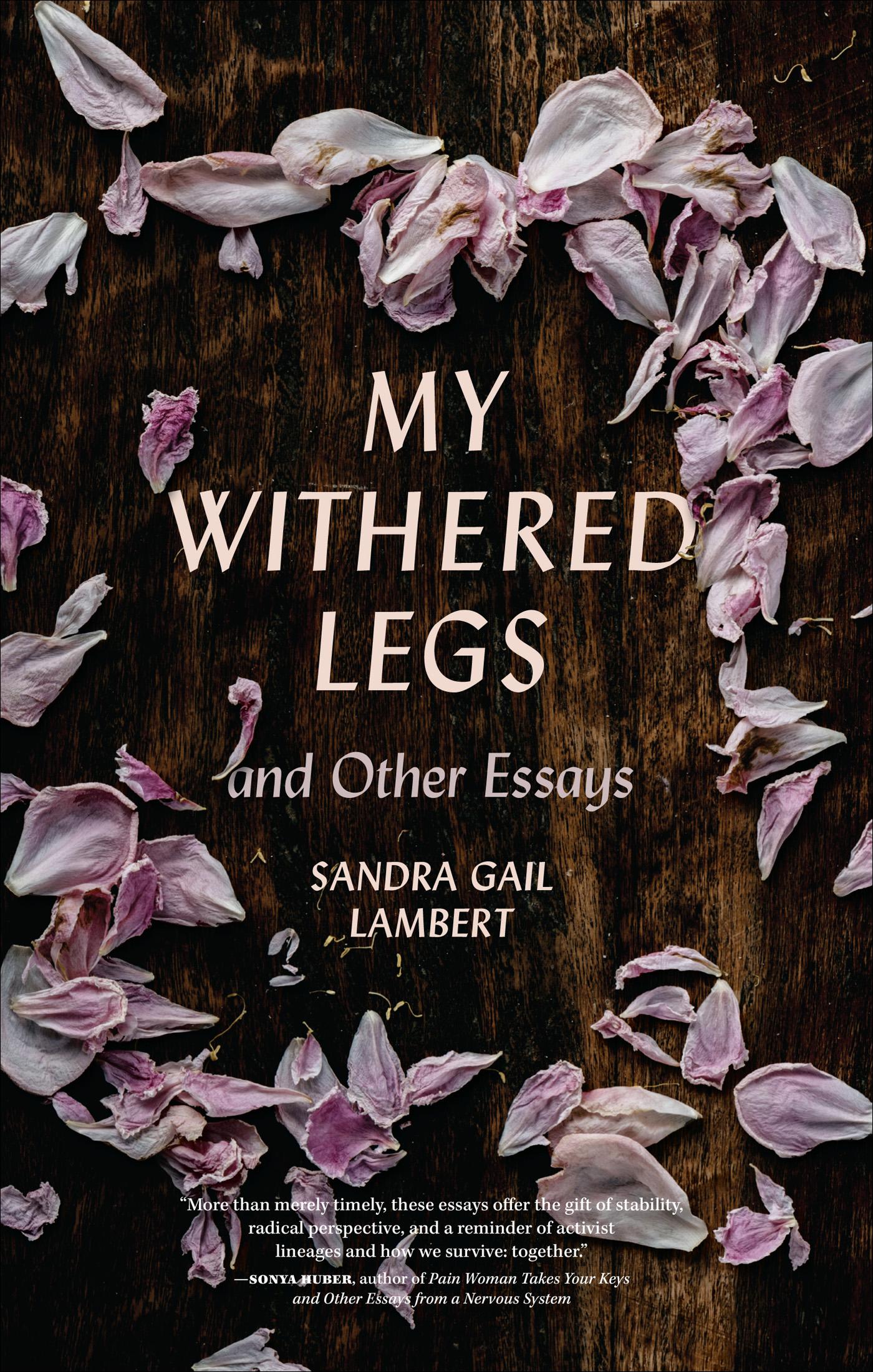MY WITHERED LEGS AND OTHER ESSAYS
OLD POLIO
The bus step was at waist level. I was ten years old. The bus driver stood beside me with her hand at the small of my back. But not touching. It wouldn’t count if she touched. She had been lifting and pushing me up the steps, but now the school principal said she wasn’t allowed to touch. And since I couldn’t get up the bus steps by myself, the principal said I’d have to go to the school for handicapped kids. I’d overheard my parents talking about it. We were freshly arrived in Virginia and not living on a military base because my father was assigned to the Pentagon, which I now understand meant I was one of the few military kids at the school. So my parents didn’t have the support of a base community or the federal government. Or maybe they’d had to push back before, but this was the first time I was old enough to realize it. The principal told them they already had one of us, a blind girl, and didn’t want to deal with another.
I like to remember the bus driver as having a body that strained against her clothes and a cigarette-gruff voice. It’s possible she smoked on the bus. These days, of course, that is unimaginable. It would also be unimaginable that a bus driver would take it on herself, just her and me, without my parents knowing, without the school knowing, to have me stay on the bus until everyone else was gone and teach me to climb the steps. She had pulled into a parking lot and snapped the doors open. Using my controlled fall technique, I threw myself down the steps with more abandon than usual. This was an adventure. She came and stood beside me. We stared up at the steps. How could I climb them and climb them without showing my panties? Dress wearing was mandatory.
She pointed out the long silver pole along one side for me to grab on to. She said, you’re strong, right? I was strong. I’d walked with crutches from the beginning, since I could walk, since I was two. So as her hand moved behind my back, not touching, I slid one crutch so it dangled from my forearm before I grabbed the pole as high up as I could. My fingers were short and chubby the way they still are. They couldn’t close around the pole, but I had a hardened grip. I’d long been the jar opener of the family. My weight rammed back onto my other arm and down the crutch wrapped around it. The wide rubber tip locked into a well of gravel and dirt. I bounced a little to make sure it was secure, which I knew to do from walking in snow during our last posting in Norway.
On our return from overseas, as usual, we had an appointment for new braces at the orthotics department of the Warm Springs Polio Foundation. This time they had fitted me with an ankle-height metal bar that attached my legs together with my toes pointed forward. It was another attempt to straighten my tibias. It was annoying in the way it limited movement. But on this day I figured out that if I kept the knee locks in place and twisted sideways, I could use my relatively stronger side to swing both legs between my suspended body, together, straight out, back and forth, until I had enough momentum to flip them up on the first step. So now I was bent ninety degrees at the waist. Cool air reached up my thighs, but my skirt hung low, almost to the ground. I could sense the bus driver’s hand wavering. I flexed the arm holding on to the pole. I concentrated. At first nothing happened, but then effort overcame gravity, and I rose and unfolded until the weight came off my back arm, the crutch rose into the air, and I was standing upright on the first step. Best I could tell, there hadn’t been a glimpse of underpants.
It was nothing to hop up the next two steps. I twirled around in place and the bus driver had both arms raised to celebrate our shared triumph. She drove me back to my regular bus stop, and I walked home and told my mother I could now get on the bus by
myself. My shoulder never hurt that I remember, but I wouldn’t have noticed.
The blind girl was older than I was. Unlike me, she was tall. Also unlike me, she claimed the space around her with both her posture and a cane. When she passed by, I stopped moving and pressed close to the wall. I didn’t want her to be alerted by the clang of the crutches or the rattle of the buckles that strapped the braces to my legs. I didn’t want her to know I was there. I didn’t want her to talk to me. We were competitors for the small space permitted the handicapped. Ten-year-old me had no concern for kids with disabilities who weren’t strong in the same way I was, a way that made the bus steps possible, barely. All my childhood there was fear about dropping below the barely.
In 1973 the Rehabilitation Act with its Section 504 mandated full inclusion in public education, transportation, and housing for anywhere receiving federal funds. Two years later the Education for All Handicapped Children Act passed. New regulations on the books didn’t change much until disabled people used the new laws to protest and sue. But all this was after I’d finished college.
When I went to college, there was one handmade handicapped sign attached to a tree in front of one parking place. I had wanted to escape the strictures of dorm life that were still true for women in the 1970s, so I manipulated my way through parental objections until I had an off-campus apartment where I could drink too much, use drugs, and have ill-advised sexual partners. One day, when I was hungover and late to class, I parked in that handicapped parking place. I got a ticket. I took my crutches-and braces-using self to the windowless basement offices where you paid your tickets and stated the obvious. I was handicapped, and so I used the handicapped space. I tilted my head. My voice was all innocence. A woman, cloaked in parking enforcement authority, said that space was for one specific faculty member and no one else. The hint of tragedy in her voice made me think this person was either terminal or newly injured. Those of us with long-term disability or chronic illness didn’t elicit that support. I did not pull the checkbook out of
my purse. I tilted my head to the other side, shifted one braced leg behind the other, and leaned on my crutches. I might have had a ponytail flipped over one shoulder.
It was a stare-off. I won. She asked for the exact hours of my classes and gave me a sticker that let me park on campus, but, she warned, just in a few places and just for those times exactly. And not in that handicapped space. I almost pushed for library time or even enough leeway to walk to and from class, but I had already insulted her authority. And the sticker indicated it was restricted parking but didn’t say how. Every time I parked I got a ticket, and every time I called the department and they voided it. When I was challenged on the times, I said I had new classes. What did they want me to do? They got tired of my calls, and the tickets stopped. And that’s when I started parking wherever I wanted to, for as long as I wanted. If you were four foot ten, sweet faced, white, quietly bull-headed, and at an expensive private college (on scholarship, but in the parking department they didn’t know that), you could sometimes expand someone else’s individual solution to become your own. It made a basic need of my education possible.
I’m what’s called an “old polio.” We are called that, sometimes as a simple fact, sometimes in a denigrating way, sometimes for good reason, by the post–American with Disabilities Act generation of disability rights activists. As a group we old polios were integrated back into society perhaps more than any other group of modern-day disabled people ever have been. We have high levels of employment, of education, and of marriage. But the unspoken deal was that in return we would never complain or ask for anything. We were known as the John Waynes of disability and proud of it. John Waynes not in the racist, misogynist way (not that we weren’t) but that we were stoic and we were perfectionists. Succeeding no matter what became part of my sense of self. The harder something was, the more accomplished I felt. There was no worse insult than calling me lazy. The language of civil rights was unknown and incomprehensible to me. My language had whispered angry words
—“get out of my way, just try to stop me, shut up, you won’t win, I can outlast you.”
The best I remember, the culture of women’s self-care began in the 1980s. In my feminist bookstore, our bestsellers included many self-help titles that emphasized women putting themselves first. It was now the feminist thing to do. Part-timers would call at the last minute to say they weren’t coming in because they needed to take care of themselves that day. I understood, didn’t I? I didn’t. I couldn’t imagine making a call like that. And it meant that I, who had come in at five because I thought I’d have relief later, had to work thirteen hours that day, had to unpack box after box of books and carry them to the shelves, had no way to get lunch, and had to risk the cash register being left alone to rush to the bathroom. Midday, nine hours in, a customer put WomenWhoLoveTooMuch, CodependentNoMore, and TheRoadLessTraveledon the counter. I did not visibly sneer. I did ring up the large sale and was glad for the money to help pay off the bills due that week.
Those young, abled women who cancelled at the last moment were praised for some sort of reclaiming of personal power. I knew if I behaved in a similar manner, it would be because I was disabled and disabled people can’t be counted on to do their job and the problem with hiring us was when we (inevitably, was the general consensus) didn’t do our job, it was awkward to fire us. So it didn’t matter that I was the boss, I still showed up, always early, and got it done.
In 1990, when I was thirty-eight, two years after I traded in crutches for a wheelchair, the Americans with Disabilities Act was signed into law. For the first time we had civil rights, and discrimination against us was illegal. The enforcement of it was again slow, focused on physical barriers, driven by lawsuits and civil disobedience actions, and continues today more than thirty years later. But mostly I can get in places and no longer have to plan my day around where I’m going to pee. Unless it’s an airplane or a private home.
More than a generation of people in the United States have been born into a world where, at least on paper, disabled people have rights. The younger me would have felt a stranger in this universe where common words, even slurs, now had meanings that were legal or specific or positive: “damages,” “path of travel,” “distance learning,” “crip politics,” “access is love,” “undue burden,” and even what it means to work. I don’t remember what decade it was when instead of asking “Can I get in?” I used the word “accessible.” I don’t remember when I realized that was a narrow interpretation of the word. Disability rights activists would rant about accommodations versus accessibility. It took me a while, but when I understood the difference, layers of my life fell into a structural order. The parking enforcement woman accommodated me (barely). The situation was inaccessible. The last of the “ugly laws” that allowed for the removal and arrest of “the deformed” from the streets were repealed in the 1970s. They had stopped being widely enforced decades earlier, and I had no direct knowledge of them growing up except that I knew my presence was on sufferance. Their legacy is part of the atmosphere I breath in and move through even as I sometimes name myself, with pride, a crip.
A pre-COVID writers’ conference has multiple sessions in multiple time slots, and I’ve overbooked myself for many of them. But my priority is the one that includes a young disabled writer who creates wildly imaginative multimedia pieces. The work is so different from mine—something I think I could never do. But it already inspires me to be less linear, less careful, more intuitive. The time comes and it’s afternoon, I’m beyond tired, and a solitary hotel room with a luxurious bed is just across the street. One more, just this one more event, I promise myself. It’ll be worth it. At the door to the meeting room, a friend is already leaving. The writer we had both wanted to meet has been unable to travel.
The writer was going appear via video instead but cancelled that as well when one of the conference’s organizers said something about how a remote presentation was a lesser form of participation. “But they weren’t disallowing it, right?” I ask my friend. They
weren’t. And then, even in my fatigue, I’m angry. Not at the organizers but at the writer. Why should she let herself be silenced by a little kick-back, a snarky comment? It was still possible to be there. Who mattered most, other disabled writers who supported her work or some administrative drone of an ignorant, ableist conference employee who had no ongoing say in her life and no power over her physically, financially, medically, or career-wise? I heard myself spitting out one of the right wing’s current favorite epitaphs: “Fucking snowflake.”
Back at Warm Springs there was a room, the cast room, where stretchers filled the space. Tough men moved among them with buzzing saws. The saws were run up the sides of legs and backs, and screeched as they cut through plaster. Sometimes the saws would nick into spongy skin damp from weeks or months under a cast. White dust spread the smell of chalk and motor oil throughout the room and mixed with the screams of little children. Not all the children cried. I don’t remember which I was. Either way, this might have been where I learned that crying got you nowhere. Another old polio tells me she remembers that room as well and knows she never cried. She remembers calling the screamers the worst word her five-year-old self knew. They were nothing but “babies.” Babies or snowflakes, the scorn is the same.
This young, brilliant, creative writer told the conference no, I withdraw, you don’t get to have me here. I questioned, and still question, her choice. What about the importance of using your work to give other disabled people the chance to explore what is possible and to build community? And the John Wayne me thought there was an element of grandstanding, and what did she want, anyway, the red-carpet treatment or some sort of mythical “safe space”? But the refusal to appear and subsequent public uproar led to a reevaluation of attitudes and restrictions about video presentations in a way her showing up never would have. A few years later, of course, the entire conference was online.
At Warm Springs they made the doors harder to open than they were anywhere else in order to “prepare” us. It was boot camp
mentality, and I thrived on it. Recently, I was at a university and pressed a push plate to open the door. It didn’t work. I smacked it again, this time with the side of my fist. And then again. By now my elbow ached. People around me stared. Some offered the advice that I should report it. One person did open the door and hold it for me. I said thank you as I went through, but it annoyed me that I forgot for a moment I was still capable of opening a door on my own. And if I’d just done that from the get-go, my arm would hurt less and I’d already be where I was going.
Over and over modern-day disability activists say, “If it’s hard, something is wrong.” Over and over I’ve internally responded, “You wuss, that’s not the point. Can you accomplish what you want to accomplish or not? Fuck them and figure it out.” My resilience, the dignity I find in endurance, my adamant belief that help is fine but to always make sure you can do it on your own, and the parameters of my physical ability that have allowed this belief—these lifelong survival skills have not lent themselves to flexibility or to compassion.
So back to doors. I was at another writer’s conference working on personal essays, some of them about my childhood. The doors to the outside patio where we ate were heavy and full-length glass, which is a bad combination for me in my power chair while holding a plate of food in one hand. I mean, I can do it, but it’s risky. One day I thought, “This really shouldn’t be so hard.” And then I thought it again. “No, I mean really. This shouldn’t be so hard.”
Holding that plate of ziti with chicken and pesto with my wrist starting to shake from the weight of it, I considered my life. What would have happened if so much hadn’t been so hard? If I hadn’t been chronically scared about the consequences of the barely possible becoming impossible? And these days, at seventy, many things waver on that border—lifting up out of the bathtub, pain that prevents sleeping, exhaustion that limits my writing, remembering words, those damn doors in front of me. I backed away, turned, found a staff person, and asked them to open the door for me. I did this for the rest of the conference . . . mostly, not always.
What if it hadn’t been so hard? I wake with the question in my mind. My fingers type it into whatever essay I’m working on as its own paragraph with spacing above and below. Almost a year after eating that ziti, I think, “Just answer the question.” What if? Would I have spoken to the blind girl? We wouldn’t have been friends because she was two grades above me, which is a chasm of time at that age. But we would have known each other was there.
Pulling up the bus steps wasn’t the first or last of ways my body was pushed to its limits. One college semester I had classes at opposite ends of campus and ten minutes between them. I can still feel the ball rotating in my shoulder socket as I threw myself through my crutches as far and fast as I could and still arrived late, red faced, and layered in sweat. I missed announcements about dates of exams and new assignments. Today, in both arms, that ball and socket catch and click against each other when I transfer into my bed. A more accessible world would have given me more years of less pain.
It’s harder to consider the parts that aren’t physical. In this imagining of growing up in a world that wasn’t so hard, what would success mean? What would I consider an accomplishment? How would I triumph? Would I even want to triumph? I’d have to be a different person for this not to seem like a loss. There’s all sorts of bad logic to this speculation. I was the oldest child, and our household was heavy on focus and discipline, so with or without a disability, I might have been a child who strived.
The poet Naomi Ortiz wrote a self-help book. It’s about self-care for disability activists, among others. My first exposure to writing about disability included work by Nancy Mairs. Her subject matter was sometimes similar to Ortiz’s, but Mairs consistently wrote to an abled audience, which, no matter how insightful her essays, left me excluded and lonely and angry. I’ve been able to read Ortiz’s book in pieces and from time to time. The words are written to me, but the past endures and I’m wary. Still, sometimes a passage creates a wash of generosity and kindness that makes me touch into the
depression at the bottom of my neck, the jugular notch. The words and the touch leave me uncomfortable. And comforted.
I watch wheelchair motocross videos. There’s fourteen-year-old Lily Rice flying up into the air and flipping her neon green wheelchair into a twisty somersault. At fourteen, in 1966, I was technically physically capable of being strapped into a manual wheelchair and pushing myself off a concrete ledge. Except I wouldn’t have. Besides the fact that BMX hadn’t been imagined yet, even the camera shot of her inverted angle of descent makes me sweat. But when I was fourteen I lived in Norway. I had a wooden sled capable of a wonderfully terrifying level of speed, but if I was fourteen today, perhaps I would be a sit-ski giant slalom Paralympic contender. Right now, as I’m writing this, a friend, a Paralympic athlete, is at a Disabled Veterans Winter Sports Clinic learning to ski for the first time. She’s in her sixties. I google “adaptive skiing.” If you have enough money, there are all sorts of classes. But after a short time of excited clicking through sites, I start the list: The cold hurts my joints. I can’t risk an injury to my arms. I am not fourteen. Would I even enjoy it? The skier is tethered to a guy behind her, so you’re not really on your own. That would annoy me. All that money and effort for a just a day or two of fun that can’t be recreated when I get home to Florida. I close down the research tabs. Instead, as usual, I return to a relentless focus on what is possible. I research snorkeling excursions. As far as I can tell, they involve lying on my stomach and dog paddling. It would be fun and exciting and also warm. Still, there is grief. I grew up surrounded by mountains and slopes in the place where skiing was invented, and I was young and strong. I was right there. The time was wrong.
I open a video of Erin Clark. She scoots to the edge of the cushion in her manual wheelchair. She reaches as high up on the pole as she can. In a way that seems lacking in gravity, her body is out of the chair. It happens so quickly that I rewind the video to understand where she puts her hands. When I restart it, she is upside down with her legs ninety degrees sideways, and she makes quick circles around the pole. I rewind again and try to understand
the physics of her momentum by shadowing her movements with my own arms. Then she is upright with one hand gripped over her head and the other tucked into the small of her own back, the pole secured in her armpit. She can wrap her legs around the pole, which I couldn’t have. I imagine wrapping my legs together in shiny teal silks. I’d have been the mermaid pole dancer. My arms are shorter than Erin’s, but when I was in my late twenties, my arms might have been stronger than hers.
In my youth I could have done a version of this physically, but then it was unimaginable. In contrast to learning to ski which is still possible, the absolute impossibility of lifting my body high into the air makes it easier to lose myself in the daydream of twirling around that pole. Erin wears black bike shorts and a halter top. She explores the performance art of pole dancing. She competes in it as a sport. She inhabits her body in a sensuous, athletic way.
But for most of my life “working the pole” meant erotic dancing in strip clubs. As I conjure my performance in my imagined, fantastical universe, I hear pounding music. This is going to be fun. I’ve had large breasts since I was eleven. They offer a wide surface to bedazzle with glitter and rhinestones. When I bend my body backward to grab the pole, the splatter of reflections from my bra lights the room. And there is fringe as well. Fringe that falls from my hips so my thighs are seen and then not seen. And each time I flip upside down, my panties show.
RELATIONSHIP TIPS
Before our first date, Pam searches the Internet for “how to date someone in a wheelchair.” I don’t know this. All I know before our first date is that for years my mostly coupled friends suggest her to me as girlfriend material. Whenever Pam and I were single at the same time, one of the couples would say—in that particular choral pattern that couples have, not quite in unison, but overlapping over the ends of each other’s sentences—that I should check her out. The investment my friends have in ending my years of aloneness is greater than mine, but I did check her out. Pam is a cutie. At a concert, I said hi. She was minimally polite in return. A few years later she was at a restaurant with a group I knew. I stopped by their table to say hello. Everyone greeted me except Pam. A few years after that, at a Pride Center reception, I came alongside her in the buffet line and made a comment about the brownies. How many times she could ignore me had become my own private game. This time she looked over my head and said nothing. I’m done, I thought. The game isn’t fun anymore. My life as a single person continued.
Once a well-meaning (able-bodied) friend suggested a dating strategy: Ask out three women, any three. No big deal. Maybe one will say no, but humiliation is part of dating. But chances are you’ll get two coffee dates. One will be tedious. What’s the harm? At least you’ll have a story to tell us. (Did this last part of the instructions imply she thought my life was boring?) My dating instructor was right about the inevitable humiliation. All three of the women I
awkwardly asked out had the same panicked, twirly-eyed look when they turned me down.
I was in my sixties when Pam joined Facebook. She “liked” all my posts. She said nice things about my dog, my writing, my camping trips. In return I “liked” her posts about training for a marathon. She seemed to be fond of classic jazz standards. I learned she plays piano. Later, after we are dating, Pam will say she didn’t understand Facebook yet and had no idea what all that liking implied. But before our first date, I don’t know that she doesn’t know how to use Facebook. I do know she still has those sleepy eyes and octave-spanning hands. Her “likings” have made me bold. I put aside the previous rejections and try again. This time I don’t mess around with coffee. I don’t want anything that allows for a graceful out into friendship. I ask her on a date, a dinner date.
Soon after I came out, a woman I was dating, who used a wheelchair, made gingerbread lesbians for all her friends as Christmas presents. They had chocolate chip breasts and curled chocolate shavings between the legs. She pressed one red sprinkle down into the curls to represent a clitoris. (It was the 1970s, and we all still had lovely bushes of pubic hair.)
She asked if I would help deliver the treats. I still used braces and crutches then, and it was possible for me to get up the steps to someone’s door. My job was to knock and ask whoever answered to come out to the woman who I was dating’s car so she could give them the festive plates.
I was new in town and therefore unknown in her lesbian community. I’d knock and give the spiel, but most of them fidgeted with the door handle, stepped back, and didn’t seem to hear anything I said. Sometimes they would say no thank you and shut the door in my face. This is where I first noticed that twirly-eyed panic. I went back to the car and reported the situation. After the second time, we figured it out. All they saw was a handicapped person at their door at Christmastime. No matter what I said, no
matter that I used their good friend’s name to introduce myself, I could only be someone asking for a donation or a handout.
The waitstaff is distracted, and the food is abysmal. I’m nauseated from new medications and have to grip my armrests and hope I don’t vomit. Besides that, my standard dating terror has transformed me into a robot version of myself. Pam is charming. I’m so sad at the end, because I couldn’t carry off the ninety minutes of not being weird required by a first date. I tried. I failed. There’s a relief to that. But later Pam calls me. Even later she says she’d considered the date a bust except for a moment at the end. I don’t know what changed, but she’d thought, “There she is.”
My little dog, Pippin, is a rescue. I saw her listed on one of those matchmaking sites for dogs. She’s a terrier mix, which I found out means she wakes up every morning with a plan to dominate the world—or at least me. My job has been to take enough of an edge off to allow us a pleasant life together and to keep her safe around a four-hundred-pound wheelchair. Pippin and I went to classes that taught us how to communicate with each other. She learned to sit, lay down, and “leave it.” She learned to walk beside me and, if not heel, at least not run in front of my wheels. Keeping her out of the kitchen while I moved around in that small space took longer. I learned that she knows what I mean when I ask her to come but is unlikely to do so. But she never runs away. I learned she considers chicken bones found by the side of the road exempt from the “leave it” command. But she does tolerate my two-finger grab into her mouth to pull out decayed, discarded Popeyes’ lunch leavings. Mostly we have learned to be patient with each other.
After our third date, I report back to friends that I want to marry Pam. Although how I say it is, “Not marry marry, of course. But have that type of relationship.” I say it that way because despite the scattered places it’s allowed, marriage doesn’t yet seem real legally and has never been real to me in all the other ways. Friends are
shocked. I knew they would be. They know me to be someone appalled that lesbians’ focus of resistance has shifted from fighting the patriarchy and racism to something as status quo as marriage. Yet I want to be married to Pam and not in a so-I-can-get-healthinsurance way. I want it in that other way I know so little about. But I want it. I don’t tell Pam this. Not yet.
Once I was asked if, as a child, I ever imagined my future partner or family. I hadn’t. Ever. I asked if this was something kids did. Yes, the woman asking me said. Her voice was sad. Her sadness made me uncomfortable.
Pam and I have our first sex talk. I say many words about the long periods of physical aloneness in my life from childhood hospitalizations to now, and how this last stretch of aloneness has included a decade of passion-killing menopausal sleeplessness and anxiety, which has only recently lessened. I say that, when she kisses me, I feel desire, but as if from a far distance. But I desire to have desire. I stop talking, sure I’ve failed in my explanation. I’ve arrived at her house just as she was back from a morning run. We’ve fallen into this conversation before she can take a shower, so she goes to do that now.
After a minute, Pam comes back out into the living room, naked, and asks if I would like to watch her shower. I follow her down the hall. I’ve never seen her naked before. Desire becomes less distant. During the shower, water drips and beads and runs down her body in all the ways we’ve all seen in all the sex scenes of movies. She smiles at me from time to time, but mostly goes about the business of a shower. This isn’t about sex. Well, it is about sex, but it is also a wordless response to all my words, a communication of understanding and of willingness.
This is my first “take me, take my dog” relationship. Despite all her liking of my dog posts, Pam doesn’t know much about dogs. She makes the effort to learn. I referee some. I direct the little dog to
her crate, and tell Pam that the snatching of food off her plate and the ignoring of “No, no” wasn’t personal. But really, it is. Pippin is thrilled with the new opportunities for dominance and has judged Pam as an easy mark. I advise Pam about consistency and that anger is neither productive nor allowed.
Pam and I have a fight. We are waiting at the end of my driveway to cross the road. It’s a quiet neighborhood, and the only car in sight pulls to an alarmed stop just short of us. The woman behind the wheel waves in a frantic way for me to cross in front of her. I don’t move. I look away until she gives up and continues on. Pam asks why I acted that way. I say the woman was treating me as if I were a toddler who might dart out in front of her. Pam asks how can I possibly know that. It seems to her the woman was just being considerate. My voice rises. I say that I’m the one with experience. I know what I’m talking about. Who was she not to believe me? Pam says I don’t get to say what she should or shouldn’t think. She says I can be too “directive.” I’ve heard this before. I know it means bossy and controlling. I say disabled people have to be very, very clear. We have to say specifically what we want, need, and perceive to be happening; that my control makes my life possible. Pam says she gets to come to things in her own way. We have no resolution.
Visibly disabled people are often asked questions. How do you take a shower? (Soap and water.) Tell me about the hydraulics on your lift van. (I don’t know what hydraulics are.) How fast does that wheelchair go? (Vacant smile as I keep going past the heckler.) Can you have sex? (Fuck off.) How do you use the toilet? (Fuck off so much.) Where can I get my grandma a chair like yours? (Here’s the number for my wheelchair place. They’ll take you through the process. Does she have Medicare? If not, you can also get some good deals off of Craig’s list. People who died, you know. But whatever.) It is always my pleasure to help old people be mobile. But ever since the Internet became ubiquitous, I’ve wondered why
people don’t just look for answers on their own rather than use me as their encyclopedia of disability.
It’s a year into our relationship when someone asks us how we met, and I find out why Pam had been dismissive of me in the past. I have never asked. I don’t know if she remembers or noticed. In her forthright way she tells this friend that she’d always liked me but had been scared. Because of my wheelchair. I hold my breath. We plan to move in together, which I see as progress toward my still unspoken to her getting-married plan. I don’t want what she says next to ruin it. I don’t want to find that, somehow, I haven’t noticed she’s an ableist piece of shit who harbors creepy caretaking fantasies or pity or has some autonomy-diminishing perception of our relationship. I also don’t want to hear anything about how she doesn’t notice I’m disabled. (I do, even in that moment, realize that I’m not leaving much room for her to get it right.) That’s when I find out she looked it up on the Internet—how to date someone in a wheelchair. I’ve never looked it up myself. I wait to hear what Pam found. The Internet told her to not assume I will stay in my wheelchair at the table and not to assume I won’t. To ask before helping. To listen to the answer. That if the staff asks her what I want, to redirect them. To at all costs avoid saying, “Wanna race?” To not worry about being perfect. She says the permission to make mistakes helped the most. I am relieved. My marriage plan can continue.
Pippin figures out that having Pam around works to her advantage. They go on runs together. Pam gives her treats after every walk, whereas I have always thought the walk itself was the reward. The crook of Pam’s knees is more cave-like and warmer to sleep in. They work out their own routines and limits. The little dog is different with Pam. When I cry, she becomes anxious and barks at me. With Pam she rests her chin on Pam’s knee to comfort her. When they walk the neighborhood streets together, she doesn’t snark at other dogs the way she does with me (except for the fluffy brown dog in the house
across from the park, who is her archenemy). Pam and I decide that the little dog doesn’t think Pam protection is in her job description and that any emotional instability on her (Pam’s) part will not significantly affect her (the dog’s) routine. And when all three of us stroll together and Pam has the leash, the little dog’s damn nose stays millimeters from Pam’s calf in a perfect heel. Pam has never asked her to do this. This is the arena where she (the dog) and I have most often tried to make the other do what we want.
It’s become a joke between us (me and the dog). When she forgets herself and pulls in front of Pam, she will self-correct back into that perfect heel position. Then she gives me a sly glance of triumph just in case I had ever for a second thought she didn’t understand what I wanted from her. I mutter, “You bitch.” We share a laugh (me and the dog). Which means I shake my head and roll my eyes, while she snorts and gives me side eye. Dog humor is often about winning a power play.
Growing up lesbian and disabled in the 1950s and 1960s had left me not only without the words but also lacking an imagination about the coupled state. From the first, men seemed like another species. Not bad necessarily, but rather biologically and emotionally incompatible. They confused me. I figure that was the lesbian part mostly. Never being included in make-believe weddings or given baby dolls to care for or asked coy questions about boys by adults or my peers, that was about disability. This exclusion from the cultural universal of relationships had left me ignorant and awkward. It did, of course, have benefits in that I grew up without expected roles.
Since I grew up sort of a separate species, I decide to follow Pam’s example. I study human relationships. I read scholarly articles about how the lack of role models for people with disabilities allows altered thinking. I read about how some children who are deaf, who have never known a deaf or hard-of-hearing adult, believe they will become hearing at a certain age, while others believe they will die young. Those are the choices their imaginations allow. My best
resource turns out to be the websites that offer 10, 25, 101 relationships tips. The sites are silly, and the ads gum up my computer, but I learn about love languages. I learn concepts like compassion, forgiveness, and presence. And it seems that “compromise” has a meaning besides lowering one’s standards or becoming untrustworthy.
Pippin and I don’t fuss with each other much these days. Sometimes I enforce rules, but she starts it. She lies on the bedspread but slips her chin over onto the not-allowed sheets and makes eyes at me until I notice and say “SHEETS” at her. She moves her head back and smirks. As usual, the trainer/trainee roles are blurred. Sometimes she puts the tips of her front paws over the threshold into the kitchen while I’m scooping up her dinner. She just wants me to say “Get out of here!” But I have to say it in a poorly rendered New York accent or she won’t pull her paws back. We love Pam together. When Pam arrives at the door, the little dog executes a series of exuberant, gravity-scoffing leaps with more twirls than an Olympic skater. I whoop along with her.
Pam is going to move in. I worry that I’ll be too . . . well, me, and micromanage the endeavor to such a degree that she bolts. But I am a good planner. I have the skills. I make timelines and lists of chores for the move, but I keep them private. I tell myself that they are there if Pam asks. Deciding it will be suspicious if I don’t take charge of something, I decide on the piano. Wherever the piano goes, Pam will follow is what I tell myself. I ask Pam if I can handle this particular detail. She agrees. I hire a piano mover. I set a date. I push furniture this way and that and measure spaces. The piano arrives without mishap and slips into the allotted spot as planned and the house is changed. It expands. It’s as if Pam is here. And I was right. She does follow the piano. And when she plays Pippin comes from wherever she is to lie on the couch, as close to the piano bench as possible. She puts her chin on her paw and listens. Every time. For all the years that follow.
MY WITHERED LEGS (WHAT IS LOST)
Early on in my writing life, which for me was in my forties, I wrote a thinly-disguised-as-fiction piece about a woman who needed to make immense changes in her life and how was she going to have enough courage to live into the consequences. The story explored themes of independence and isolation, of disability and desire. The woman used a wheelchair. She was a lesbian.
It was unusual for me to have feedback from what I thought of as “real” writers. And as I was becoming more serious about writing, this lack of access to knowledge was exasperating. It seemed impossible to make what I wanted to say work on the page. I’d read Dorothy Allison and yearned to write dialogue as effectively. How did Alice Walker structure a story like that? I wanted to twist the reader’s brain like Joanna Russ. And Beloved—it was absurd to think I could ever lift my writing into such rarefied layers of the atmosphere. But I wanted to try. The next move, it seemed to me, was that I had to show my work to people outside of my friendly hometown lesbian writers’ groups. A writer I knew who was a college professor and had actually been published said she would take a look at my story.
This college professor read my piece and told me having a character disabled and a lesbian was too messy, too complex for a short story. She thought that since there was no tension or plot development about being a lesbian, I should leave that part out. And here it was, right during my first foray into a wider (straight) writing world—lesbian erasure. My lesbian-feminist self was outraged. I thought, “Not enough lesbian content, I’ll show you lesbian content.” So I added a part about my character noticing the hands of a
waitress at Shoney’s. How strong the fingers were. How competently they handled the heavy plates. The way her thumb gripped into the sweaty glass of ice water. My character made a joke about the waitress’ sensible shoes. I dyked up that story all over the place. I even gave my character a Barbara Stanwyck obsession and had her fantasize about the thick black leather belt Victoria Barkley, power femme personified, wore cinched above her jodhpurs on “Big Valley.”
My story became one of those crowd-pleasers. I’d read it at gatherings and get all sorts of laughs and accolades, and I liked that. I didn’t like that my double down defensive reaction to the feedback meant the original story had been derailed. Disability and desire were still there. The exploration of independence versus isolation was gone. Each time I read the story, amid the applause, I mourned. And I knew right then, back then, that there was the loss of something as yet unknown to me.
I kept searching out places and people who would teach me. I had very little money and my energy was limited. I audited a fiction writing class at our community college. I discovered the world of writing residencies and conferences. Some offered scholarships and sometimes I stole from my savings account to pay the fees. It was at these residencies and conferences where I learned about literary journals and that you could submit your work to them and that my writing was considered literary.
The first time I ever received a personalized rejection, the editors of the journal included a full page of feedback about my short story (another thinly-disguised-as-fiction piece). They thought I might find it helpful. I was thrilled. I’d almost been published. And I’d received a rejection notice with handwriting on it. This was the first time I’d ever seen so many words written about my writing.
The writer skips over too many places in the story that seemed to ask for more when a woman is dealing with life from the vantage point of a wheelchair. . . . What about useless legs trailing behind her as she swam? Maybe there is the bigger point here that a person without the use of her legs doesn’t focus on these things, but even if she doesn’t focus on these things, for some reason [italics added] I have to see them.
What did he want? Was my character, a woman successfully paddling by herself deep in the Florida backcountry, supposed to have a self-hating monologue about her body in order to satisfy some unnamed, highly suspect need in the editor? It’s not as if I hadn’t known since childhood about the dissonance between my reality and what other people thought and assumed about me. But this was the first time I’d been told so clearly that my take on my own life wasn’t enough, wasn’t valid, wasn’t publishable. The thought of bridging that chasm by pandering to prejudiced notions of disability disgusted me. At the same time, I wasn’t willing to be kept from the education and chance to improve that comes from submitting work out into the world. And once I’d finished—way too many months later—ranting about the terrible wrongness of that feedback, I reread it. This time I noticed another paragraph. In it he wrote about how I didn’t give enough attention to making each scene work toward a central theme. There it was—the next skill, the next understanding I needed. I took that sentence of feedback and used it to jump my writing forward.
And this is how I continued. At a workshop, other writers were shocked that I didn’t “reveal” that my character used a wheelchair until three paragraphs in. (Which was when it naturally appeared in context.) They complained they felt tricked because an important, central detail had been left out. One of them literally sputtered, spit flying over our papers. It was as if I was supposed to announce the wheelchair in the first phrase of the first sentence. But at that same workshop another writer showed me how to make a chart to keep track of my submissions to journals. I still use it. And another taught me about nuance in introducing characters.
When I finally dropped the veil of fiction and started writing personal essays, people were somewhat less likely to tell me I was wrong about my own life. (And the fiction I did write became stronger.) Although there’s an assumption that everyone under a certain age who uses a wheelchair must have had a spinal cord injury. Readers, editors, and even the staff in doctors’ offices have argued with me that I don’t have feeling in my legs. Really. I had
polio. I have feeling. Fortunately, sort of, as I age there are other assumptions about why I use a wheelchair—general decrepitude, for instance.
The obsession with my legs continues. No matter what the theme of my essay or story—lesbian love, wilderness exploration, mother/daughter relationships—it seems everyone wants me to include more or at least something about how I feel about my legs. I’ve never understood that. Why would I think about my legs all the time? Okay, sometimes my legs are a part of the story, so a legitimate point can be made that I should write more about them. But then the next sentence of the critique will offer up examples of how I can do that. “Useless” continues to be a frequent descriptor offered. Other choices have included “atrophied,” “flabby,” and “withered.”
I’m a regular person. I have bad hair days and nothing-fits-right days and this-bra-makes-me-bulge-in-weird-places days and whendid-I-get-that-new-age-spot days. And I’ve had bad leg days as well that have never once involved the words “withered” or “useless.” My bad leg days are more about how my foot puffs up above the line of my shoe, and my socks persist in wrinkling around my ankles.
It helps that I had some extra decades of living before my writing was read by anyone. This added emotional steadiness offers perspective, but not necessarily right away. I’m a regular writer, so I spend time secretly bouncing between two-year-old temper tantrums and a teenager’s sullen angst when critiqued. And I still lose my equanimity with what can happen after I’ve again been told I don’t include enough about my legs or wheelchair. The next paragraph of feedback is often something about how these omissions are signs that I’m not delving enough into my life, that I should “dig deeper,” that I’m not writing in as honest a way as I could. I can deal with ignorant and disrespectful words, but now I’m being told I’m a dishonest writer. “Fuck you,” I think.
Better description, digging deeper, writing honestly—all these, when not being used as an attack on a writer’s self-awareness, are very good advice. So I glean from the emails, notes from the
